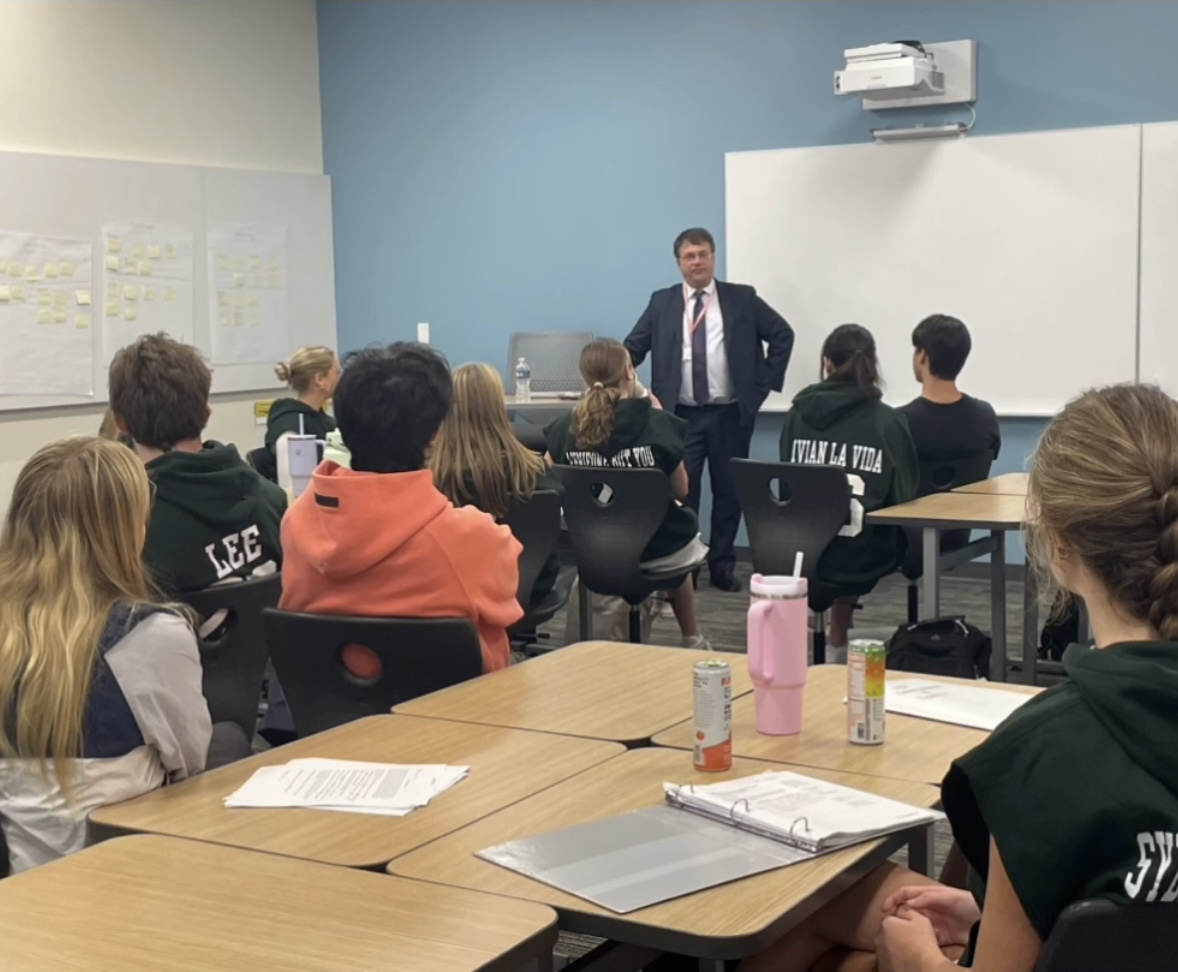Amidst national crisis, New Trier sees drop in math scores
New Trier SAT math scores plunge compared to previous years of scores
My Learning Network
SAT scores have declined for a second consecutive year at New Trier, as math retention is declining nationwide.
New Trier’s SAT scores have declined for a second consecutive year, as a nationwide decline in retention of math skills is becoming increasingly apparent.
This year the National Assessment of Educational Progress released its annual assessment of fourth and eighth graders, revealing the largest drop since it was first conducted in 1969. While remaining well above the state and national average, New Trier’s test scores have dipped as well. In 2019, 80.7% of New Trier juniors met or exceeded the SAT standards for math, according to the Illinois State Board of Education. This year that number was down to 69.5%.
“Obviously there was a pandemic, so learning was disrupted in some ways for a number of students,” said Mary Lappan, chair of the Math Department. “I think last year was probably where we saw the height of it because kids were just back in school.”
As an example, juniors who took the SAT this past year had only been in school for part of their freshman year, with remote hybrid learning their sophomore year. Due to pandemic learning, this was the first major standardized test for a number of students.
“Most students that take the SAT, or any standardized test, do better the second time because they know what the format is going to be like,” Lappan said.
Sophomore Jonah Swanson, who is currently taking pre-calculus, explains his difficulty with online learning.
“It was really difficult to learn over zoom because it was hard to get a hold of teachers and ask questions.”
The school is currently offering different services to help students with math, including teachers working one-on-one with students, according to Lappan.
She also mentioned the addition of the AAC at the Winnetka campus this year as a way for students to receive further assistance with math.
According to the State Board of Education, chronic absenteeism, the share of students who miss 10% or more of school days, was up to 18.9% in 2021 at New Trier, an increase from 9.5% in 2019.
“Attendance is a big thing for math,” Lappan said. “If you miss a number of days of math, it’s really hard to catch up.”
The report from the National Assessment of Educational Progress found that four out of ten eighth graders failed to grasp basic math concepts.
“Then moving on to harder stuff if you didn’t learn the basics last year, it’s more difficult the next year,” Swanson explained.
While the department is still analyzing the recent test results, they are looking for other ways to help students who struggled with math learning over the course of the pandemic.
“We’re trying to identify potentially for a particular kid if there’s a small set of skills they didn’t pick up along the way that are holding them back,” Lappan said. “We might be able to see them on that test and intervene early.”
In 2022, the share of New Trier juniors who exceeded the SAT math standards was 24.4%, four times greater than the state average of 6.2%. However, this number marks a sharp decline from 33.7% just last year and 41.7% in 2019. (There is no data to compare from 2020).
This pattern of decreasing test scores in the wake of Covid has been seen across the board nationwide and in Illinois. The state average of students passing the SAT math standards fell to 28.8% this past year.
Locally, similar trends can be observed. Glenbrook, for example, saw 63% of students pass the SAT math standards, a 7% decline from two years ago. In Highland Park, only 59.5% of students met the standards, which is down from 67.1% in 2019.
However, Swanson believes that test scores and comprehension will improve “as we get more adjusted to non-pandemic learning.”
“I would expect that in future years you’ll see the test scores go up,” Lappan said.
Until then, she said, “We’re just trying to be mindful of where students are and what skills they’re still learning.”








































